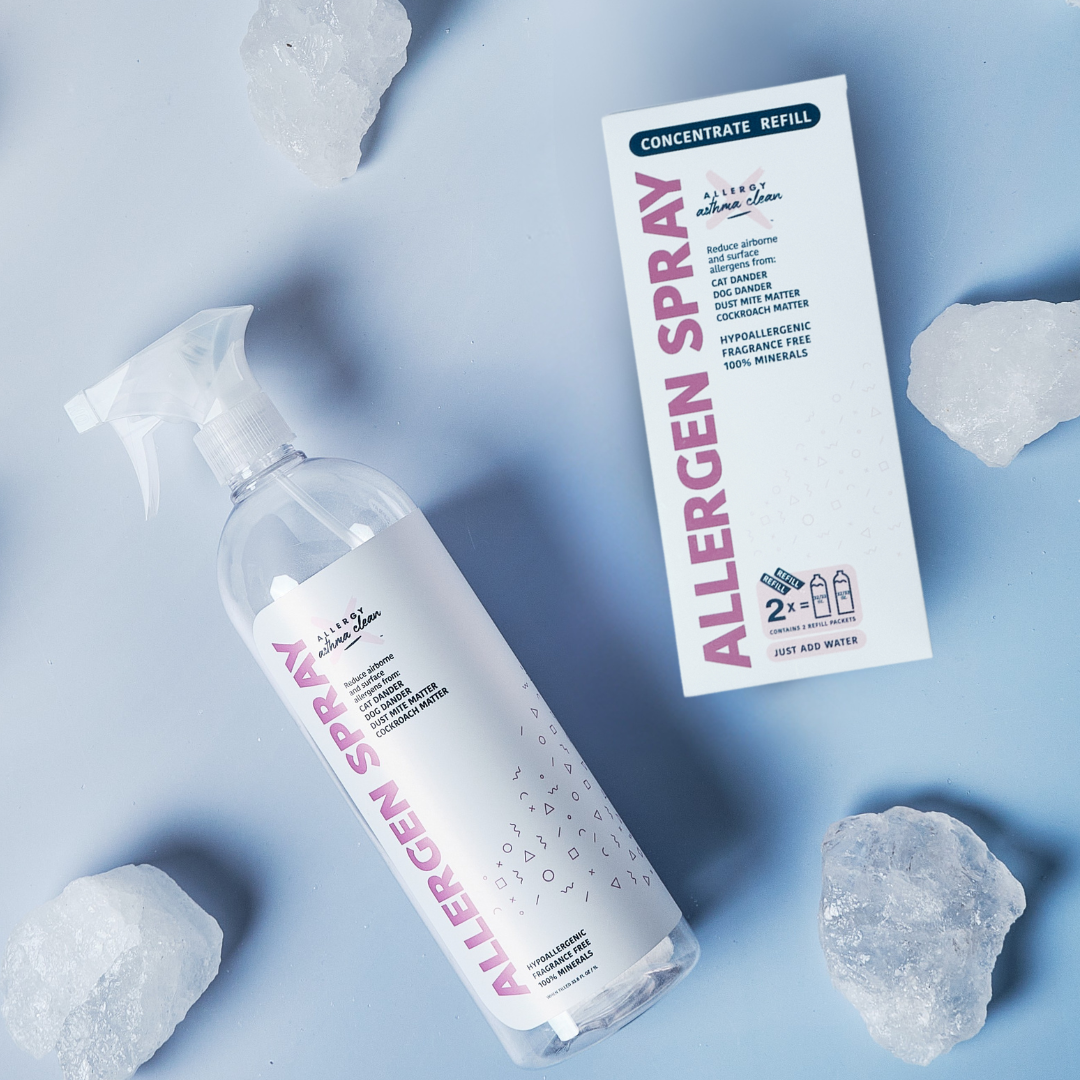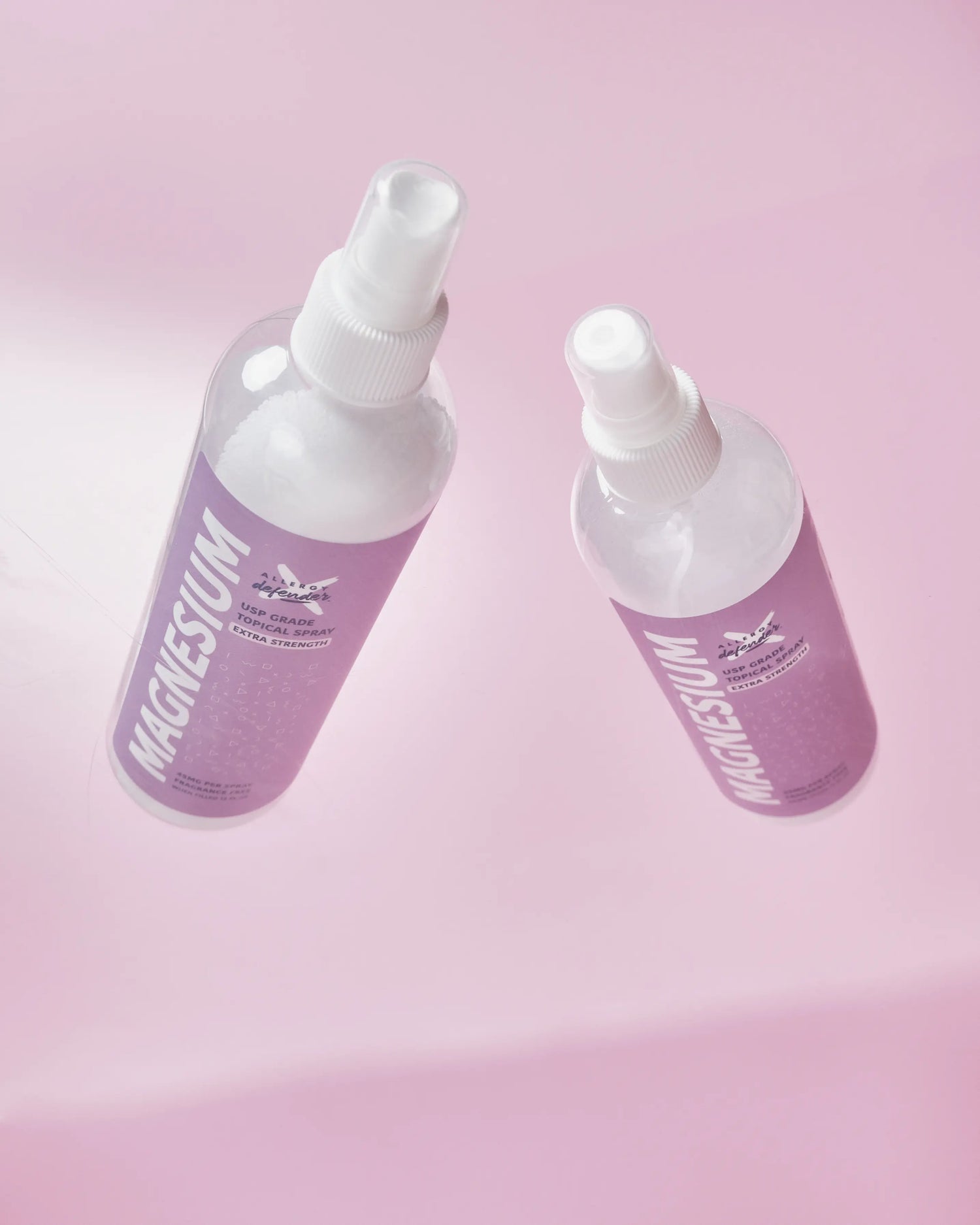Are Shih Tzu Hypoallergenic? Is it True? Find Out The Facts
TL;DR Shih Tzus aren't truly hypoallergenic despite their reputation. All dogs produce dander (dead skin cells with proteins triggering immune responses), plus allergens in urine, saliva, and blood. Shih Tzus shed less and have hair instead of fur, but they still cause reactions in sensitive individuals. Their long coats trap pollen, dust, and irritants from walking outdoors. Management strategies: keep your home clean with a HEPA vacuum, create pet-free bedroom zones (closed door, put on clean clothes before entering), bathe your dog regularly with hypoallergenic shampoo (allergen reduction lasts only 2 days), use Allergy Asthma Clean Allergen Spray by Allergy Defender (lab-verified 99% surface/95% air reduction), wash hands/face after playing, weekly hot water bedding washing (130°F+), minimize carpeting if you can, clean air vents/filters. Alternative breeds (Poodles, Bichon Frise, Yorkshire Terriers, Maltese) also produce allergens.
Key Takeaways:
- No dog breed is truly hypoallergenic – all dogs produce dander (dead skin cells), urine, saliva, blood allergens; Shih Tzus shed less with hair instead of fur, but still trigger reactions; individual responses vary widely
- Dander primary allergen source – it contains proteins that trigger immune responses, causing sneezing, coughing, itchy eyes, and skin rashes; dogs spread dander throughout their fur during grooming; allergy to protein on hair/fur, not hair itself
- Long coats trap environmental allergens – Shih Tzu hair catches pollen, dust, irritants during outdoor walks, bringing additional allergens into the home, worsening allergy symptoms
- Regular bathing is a temporary solution – hypoallergenic shampoo reduces coat allergens temporarily; allergen levels return to normal within 2 days; requires frequent repetition for limited effectiveness
- Allergy Asthma Clean Allergen Spray by Allergy Defender most effective – liberally spray every room, "spray and step away" 10 minutes; lab-verified reduces 99% surface allergens, 95% airborne allergens; works on all indoor pet allergens
- Comprehensive home management required – HEPA vacuum regularly, pet-free bedroom zones, wash hands/face after contact, weekly hot water bedding (130°F+), minimize carpeting (because it traps allergens), clean air vents/filters; spend considerable time with the breed before deciding
Are you a pet lover but suffer from pet allergies? Are you considering getting a Shih Tzu as a furry companion? Are Shih Tzu hypoallergenic, or is this too good to be true?
Many people believe that the Shih Tzu is hypoallergenic because of their long, luxurious coat and the fact that they shed less than other breeds. However, the reality is a bit more complex. While Shih Tzus may seem like the perfect choice for pet lovers who are looking for a hypoallergenic dog breed, the truth is more complicated.
Some people may be perfectly fine with a Shih Tzu, while others may experience significant discomfort. Individual reactions to allergens can vary. But if you're considering bringing a Shih Tzu into your home, by all means, spend considerable time with the breed and observe your allergic reactions before making a final decision. A good idea is to go to a breeder's home and hang out there to see if you react. Most breeders will have more than one dog to choose from, so allergens will be there. Trust us!
The Shih Tzu is a small Tibetan toy breed initially bred as companions for Buddhist monks and imperial rulers. Known as "lion dogs," they are friendly, social, and adaptable pets. The breed became popular in the U.S. after being introduced from England in the 20th century.
Shih Tzus are sturdy, weighing 9–16 pounds, with long, luxurious coats that require regular grooming. They are brachycephalic, meaning their flat faces can lead to overheating and breathing issues. Caring for Shih Tzus involves frequent coat maintenance, proper exercise, and attention to health. They are prone to conditions like brachycephalic syndrome, obesity, hip dysplasia, and dental issues. Despite these challenges, their life expectancy is 10–18 years, making them loyal and loving companions.
What Makes the Shih Tzu a Popular Choice for Allergy Sufferers?
Shih Tzus have gained popularity among allergy sufferers due to their reputation as a "hypoallergenic" breed. While they might shed less than some other breeds, no dog breed is completely hypoallergenic, as shedding is only part of the problem.
A Common Misconception
Shih Tzus have certain characteristics that make them potentially more suitable for individuals with allergies. Their low shedding coats mean that less hair is released into the environment, reducing the spread of allergens. Additionally, the Shih Tzu has hair instead of fur. Have you ever seen a Shih Tzu with a freshly groomed coat? Beautiful! Some believe this hair is less likely to cause allergic reactions, but this is a common misconception.
Debunking the Myth: Are Shih Tzu Hypoallergenic?
Despite their reputation as "hypoallergenic dogs," Shih Tzus can still trigger allergic reactions in some people. The truth is that all dogs produce dander, which is a common allergen. No dog breed, even the cute Shih Tzu, is completely free of allergens.
The Role of Dander in Allergies
Dander is a major contributor to allergic reactions in pet-allergic individuals. It contains proteins that can trigger an immune response in sensitive individuals, leading to symptoms such as sneezing, coughing, itchy eyes, and skin rashes.
Dander is the dead skin cells of dogs, which are just one allergen among many, including allergens in their urine, saliva, and blood. When dogs groom themselves, they spread dander throughout their fur, which can then be released into the environment. As you might know, you are not allergic to the hair or fur directly, but to the allergen (protein) on the hair or fur.
Common Allergens Found in the Shih Tzu
In addition to dander, Shih Tzus can carry other allergens that can make allergies worse. Their long hair can trap pollen, dust, and other irritants, making them more likely to trigger allergic reactions. These allergens can cling to the dog's coat (when you take them for a walk, for example) and be brought into the home.
How to Manage Allergies if You Own a Shih Tzu
If you're an allergy sufferer who already owns or is considering getting a Shih Tzu, here are steps you can take to manage your allergies and minimize exposure to allergens:
- Keep your home clean: Regularly vacuum, dust, and clean surfaces to reduce the presence of dog allergens in your living space. Use a vacuum cleaner with a HEPA filter to effectively capture pet dander and other allergens.
- Create pet-free zones: Designate specific areas in your home, such as your bedroom, where your Shih Tzu is not allowed. This will create a safe space for you. Keep the door closed and change into clean clothes before entering your bedroom.
- Bathe your Shih Tzu regularly: Regular baths can temporarily reduce allergens from your dog's coat. Use a hypoallergenic shampoo recommended by your vet to minimize skin irritation. While grooming and regular bathing can help reduce the amount of allergens on a Shih Tzu's coat, allergen levels in the home will return to normal within two days!
- Use Allergen Spray: It's as easy as liberally spraying in every room of your home. We like to say "spray and step away" (for about 10 min.). Allergen Spray used in the air and on surfaces is lab-verified to reduce up to 99% of indoor allergens on surfaces and 95% in the air.
- Wash your hands and face after playing with your Shih Tzu: This helps remove any allergens that may have come into contact with your skin. Learn about how your mucus membranes and allergies are connected.
- Wash bedding regularly: Wash your bedding, including blankets and sheets, in hot water (130 degrees or more) at least once a week. And don't forget the dog's bed.
- Minimize carpeting: Carpets can trap allergens, so consider using hardwood or tile flooring in your home. If you have carpets, vacuum them regularly with a HEPA filter vacuum cleaner.
- Clean air vents and filters: Regularly clean and replace air filters to reduce the circulation of airborne allergens.
Are Alternative Hypoallergenic Dog Breeds Any Better?
If you are highly sensitive to allergens and cannot tolerate a Shih Tzu, other "hypoallergenic" dog breeds could be an option, but remember that all dogs produce allergens.
- Poodles: Poodles are often considered one of the most "hypoallergenic" breeds due to their low shedding and curly coats, which can trap allergens.
- Bichon Frise: Bichon Frises have a dense, curly coat that sheds minimally. They are known for producing "less" dander compared to some other breeds.
- Yorkshire Terriers: Yorkshire Terriers have a silky, "hypoallergenic" coat that sheds minimally.
- Maltese: Maltese dogs have a long, silky coat that sheds little. Due to their low dander levels, they are often considered "hypoallergenic."
While the Shih Tzu is not truly hypoallergenic, there are many ways you can manage your allergies and still enjoy your best furry friend. However, individual reactions to allergens can vary, and spending time with the breed before making a final decision is crucial!
Are Shih Tzus hypoallergenic? No. No dog breed is hypoallergenic. All dogs produce Can f 1 allergen protein.
Why do people think Shih Tzus are hypoallergenic? Because they shed less than many breeds and have hair instead of fur, reducing allergen distribution (but not production).
What allergens do Shih Tzus produce? Can f 1 (primary dog allergen), Can f 5 (found in urine), plus dander, saliva, and urine allergens—same as all dogs.
Do Shih Tzus shed? Yes, but fewer than many breeds. They have hair that grows continuously rather than fur, so shedding is minimal.
Does hair vs fur matter for allergies? Sort of. Less shedding means less allergen distribution, but the dog still produces the same allergen proteins.
How often should I bathe my Shih Tzu to reduce allergens? Every 1-2 weeks, but allergen levels return to normal within 2 days after bathing. Bathing is a temporary reduction, not a solution.
What's the best way to reduce dog allergens at home? Allergy Asthma Clean Allergen Spray by Allergy Defender—lab-verified up to 95% reduction in air, 99% on surfaces. Plus, insist on a pet-free bedroom, use a HEPA vacuum cleaner, and regular cleaning should work well.
Can you live with a Shih Tzu if allergic? Maybe, if allergies are mild and you aggressively manage allergens. Not recommended for moderate to severe dog allergies.
What are the most hypoallergenic dog breeds? No breed is hypoallergenic. Low-shedding breeds (Poodles, Bichon Frise, Maltese, Yorkshire Terriers) distribute less allergen but still produce it.
Ready to manage dog allergens effectively?
Allergy Asthma Clean Allergen Spray by Allergy Defender | Lab-verified up to 95% reduction in air, 99% on surfaces | Works on dog allergens | Third-party tested | Free shipping | 30-day guarantee



